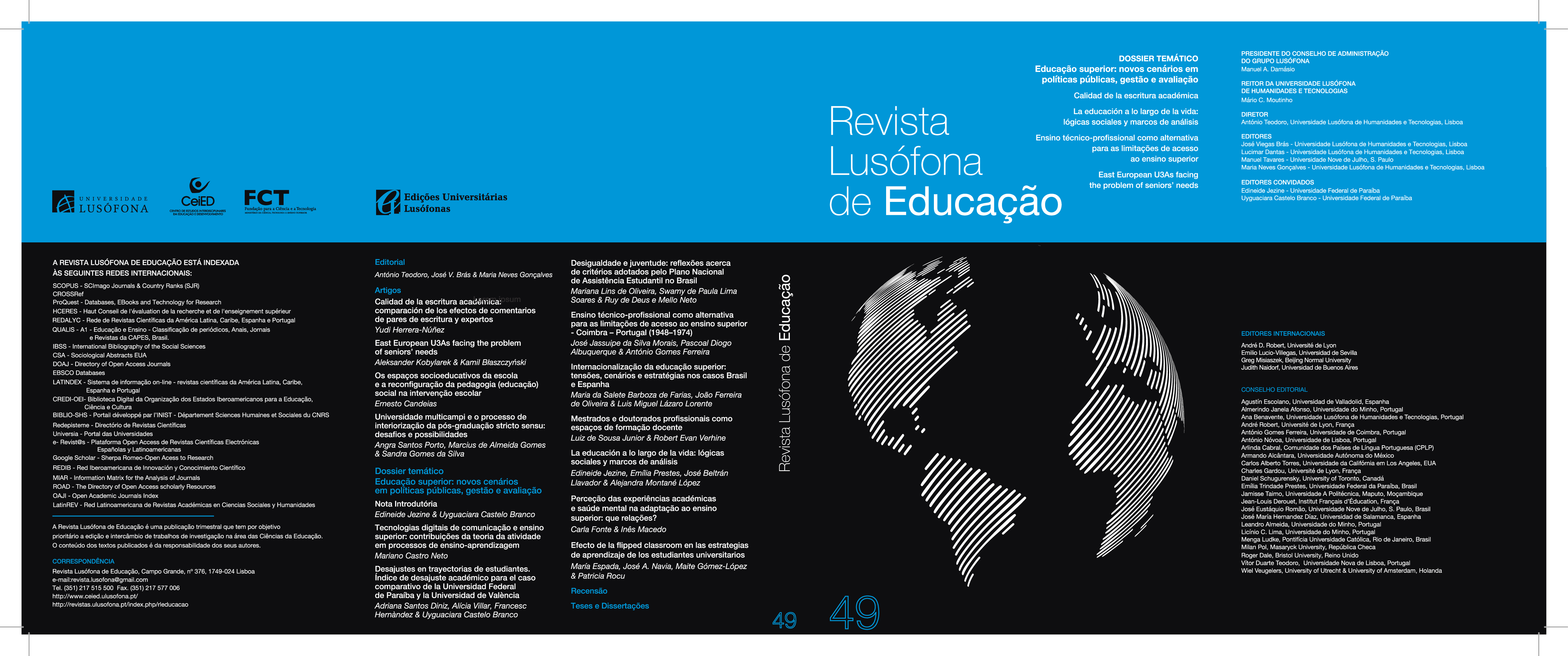Internacionalização da educação superior: tensões, cenários e estratégias nos casos Brasil e Espanha
Resumen
O presente artigo apresenta reflexões decorrentes da realização de estágio pós doutoral que objetivou conhecer experiências sobre o processo de internacionalização da educação superior no Brasil e Espanha, considerando objetivos, estratégias e tensões. Para tanto, foi realizada revisão bibliográfica e analisados documentos relevantes sobre o tema, a exemplo da proposta da Coordenação de Aperfeiçoamento de Pessoal de Nível Superior (Capes) através do Edital nº 41/2017, disponível na WEB Capes (2017) e o documento Estrategia para La Internacionalización de las Universidades Españolas 2015-2020. A teoria de campo científico de Bourdieu nos possibilitou ver que as estratégias utilizadas para a internacionalização da educação superior, mais acentuadas nos tempos atuais, se inserem também no jogo de lutas pelo poder e pelo monopólio da autoridade científica entre instituições acadêmicas nacionais e internacionais.
Palavras-chave: internacionalização; educação superior; campo científico.
Descargas
-
Los autores y las autoras conservan los derechos de autor, sin ningún tipo de remuneración, y conceden a la revista el derecho de primera publicación. La obra se publica simultáneamente bajo la Licencia Creative Commons Atribución 4.0 Internacional (CC BY 4.0), que permite a otros compartir (copiar y redistribuir el material en cualquier medio o formato) y adaptar (remezclar, transformar y crear a partir del material para cualquier propósito, incluso comercial), siempre que se reconozca la autoría y la publicación inicial en la RLE.
-
Los autores y las autoras están autorizados a celebrar contratos adicionales de manera separada para la distribución no exclusiva de la versión de la obra publicada en esta revista (por ejemplo, depositarla en un repositorio institucional o publicarla como capítulo de libro), siempre que se reconozca la autoría y la publicación inicial en la RLE.
-
Los autores y las autoras tienen permiso y son alentados/as a publicar y difundir su trabajo en línea (por ejemplo, en repositorios institucionales o en su página personal), ya que esto puede aumentar la visibilidad y la citación del trabajo publicado (véase El Efecto del Acceso Abierto).








